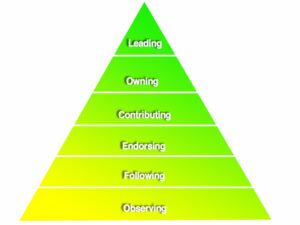Contents
Employee Engagement Programs

Companies are always looking to do more with less. They’re trying to figure out how they can increase the efficiency of their business by cutting down on costs in order to make a profit or keep up with the competition. Employee engagement programs are one way that companies have found success in increasing productivity and decreasing turnover rates, while simultaneously improving morale among employees. Let’s look at how these programs work and what benefits they provide for both employers and employees alike.
Employee engagement is particularly important in today’s business climate, where companies are constantly competing for talented professionals. Companies that offer employee programs such as corporate social responsibility initiatives and charity work get an edge over their competitors by attracting skilled workers, while also creating a strong company culture based on shared values and interests.
What Are Employee Engagement Programs?
Employee engagement programs are a valuable tool that employees can use to become more productive and happy at work. Companies are increasingly realizing the importance of keeping their employees engaged in order to improve the organization’s results.
Employee engagement programs can take many different forms. Sometimes they consist of a series of workshops and courses, sometimes the program is less formal, like an online portal where employees can share their ideas and access helpful information. Often, these engagements revolve around company values and mission statements. The goal is to create a unique culture that will motivate employees to improve the company.
An effective employee engagement program provides employees with a list of HR-related benefits, such as health insurance and wellness programs, to make them feel valued. It is also important for companies to provide their employees with challenging work opportunities that keep them engaged, motivated, and happy about the overall quality of their work.
How Does Employee Engagement Programs Works?
 Employee engagement programs are designed to increase participation among employees by making them feel like they’re an important part of the company. This, in turn, increases their morale and lowers turnover rates because they feel like their opinions matter. It can be as simple as a suggestion box or as complicated as a full-on committee system. The first step in starting one of these programs is deciding how you will incorporate it into your company’s culture.
Employee engagement programs are designed to increase participation among employees by making them feel like they’re an important part of the company. This, in turn, increases their morale and lowers turnover rates because they feel like their opinions matter. It can be as simple as a suggestion box or as complicated as a full-on committee system. The first step in starting one of these programs is deciding how you will incorporate it into your company’s culture.
Employee engagement programs have several benefits for both the employer and the employee. For employers, employee participation leads to a more satisfying workplace which can reduce turnover rates and cut down on costs associated with finding, hiring, and training new employees. It also allows you to get a pulse on their opinions and the issues they face in order to help you become more effective.
For employees, increasing their participation can lead to an overall increase in morale which can keep them at your company longer and make them feel like they matter. It also gives them the opportunity to voice their opinions and discuss issues with management. So that they feel like their opinions and feedback are taken seriously.
Employee engagement programs encourage employees to participate in the business while allowing them the chance to be heard. This reduces turnover rates, increases morale, and improves company culture overall.
Importance of Employee Engagement
A recent study by the World Economic Forum reveals that more than half of employees find their workplace disengaging. The definition of engagement can vary depending on the program or context. But it is usually associated with three dimensions: cognitive engagement, emotional engagement, and physical engagement. With these levels of engagement, their potential for achieving peak performance increases.
For example, cognitive engagement is based on an employee’s focus and attention levels. Employees who are cognitively engaged use their knowledge and expertise to contribute value to the company. Emotional engagement comes with a positive mindset that can be reflected in feelings of happiness and enthusiasm, which contributes to higher levels of productivity. Finally, physical engagement is associated with positive social interactions and the willingness to encourage other employees.
Employee engagement programs are also important because they help support companies’ diversity initiatives. Any effort to hire different types of candidates can be improved. If the company can get the workforce to re-engage in the workplace. An engaged workforce is more focused, enthusiastic, and fully committed to their work. This can improve results across all levels by creating a positive company culture. An engaged workforce is more focused, enthusiastic, and fully committed to their work, which can improve results across all levels by creating a positive company culture.
How To Implement A Successful Employee Engagement Program?

Creating a successful company culture involves many factors. In addition to developing employee engagement programs, companies should also take the time to get to know their employees and learn about their interests and needs, both at work and in their personal lives. This can help managers create a more engaging environment where everyone feels that they contribute to the organization.
Creating a strong company culture does not necessarily mean that the employees all have to like each other or work together on projects, but simply that they understand and respect each other’s differences and share a common understanding of what the business is trying to accomplish. This shared understanding drives motivation within organizations, which ultimately helps everyone achieve the organizational goals.
Employee engagement programs are not necessarily easy to implement, but they do offer many important benefits for managers and employees alike. However, these engagements should be approached thoughtfully; companies need to keep their unique culture in mind as they design new ways to motivate employees into action.
Benefits of Employee Engagement Programs

Employee engagement programs are frequent in the US now. These programs offer comprehensive benefits to employees. It will help them stay engaged with their work and with the company.
- The most common benefit of these programs is that they help employers with the recruitment of new employees by giving current employees a good reason to stay with the company rather than resigning.
- Another benefit of these programs is that they are inspiring enough to give employees an extra boost on their creativity which results in higher productivity among workers.
- Another benefit of these programs is that they are effective for people who are suffering from depression, human immunodeficiency virus, or any other mental health disorder.
- Employee engagement programs help employees find meaning for their lives in their work. And it can be really beneficial to start one in an organization.
However, we should recognize that it is a challenge to engage employees and for this reason. We need to know the secrets of motivating people.
As a matter of fact, in order to be successful with employee engagement programs. We need to understand what they are and we need to address a specific group of people with these programs. Another secret to employee engagement is to keep in mind that there are different types of employees. And we need to make sure that we take care of everyone and our efforts do not go in vain with them.
Increases Productivity
Employee engagement programs are a valuable tool that employees can use to become more productive and happy at work. Companies are increasingly realizing the importance of keeping their employees engaged in order to improve the organization’s results.
Employee engagement programs can take many different forms. Sometimes they consist of a series of workshops and courses, sometimes the program is less formal, like an online portal where employees can share their ideas and access helpful information. Often, these engagements revolve around company values and mission statements. The goal is to motivate employees to improve the company.
Promotes Positive Culture
In recent years, with the focus of businesses shifting from hierarchies to networks and discussions about the future of work. There has been a lot of talk about what it takes to be a successful employee. The most important thing for individuals in any profession is how they feel when they have to go to work every day. This is where things like employer culture and engagement certificates come in.
Employers should be going out of their way to create a company culture that matches up with their core values. In order for employees to retain a healthy sense of purpose and satisfaction when they’re at work. A lot of companies have taken this on by creating “employee action plans”. Or identifying certain events or initiatives that contribute to general happiness at the workplace.
Promotes Team-building

Employees in a company can build a strong bond and kinship. This is the case in organizations that have effective engagement programs. An employee engagement program is designed to motivate staff, increase productivity and happiness at work. These programs are also important because they promote team building. This enables employees to work together, resulting in a better company.
Employee engagement programs help the company’s bottom line by helping companies achieve employee excellence. It is estimated that about 30% of the workforce is disengaged while 70% are highly engaged. That means a lot of people would leave their jobs if they were not happy with it.
Helps In Employee Retainment
Employee engagement is a key part of employee retention. Organizations that invest in meaningful and positive workplace experiences for their employees experience lower turnover rates than those organizations that do not. The cost of finding and training new hires is often more than the cost of retaining current employees. This cost also takes into account the costs of production, the costs to stakeholders and shareholders. And the costs to society – which includes expenditures on social services and lost taxes.
Reduces Stress At Workplace
There are many reasons why employees may be feeling like their work is becoming less engaging day by day. One reason is that the workplace has become very stressful for them, this lack of engagement can lead to turnover. Research shows that when employees are dealing with stress, they become less engaging with their work.
The way to reduce employee stress at the workplace is by encouraging more communication among colleagues, supervisors, and managers. This is possible by introducing more socialization activities for the staff. Like providing more training on how to handle difficult situations. The company culture also plays a huge role in reducing stress. There should be a collaboration between coworkers. Clear communication among managers and employees about expectations, and creativity in the workplace.
A Word From MantraCare
Do you want to keep your employees happy, healthy, and productive? Join our employee assistance program and get a healthier workplace.


